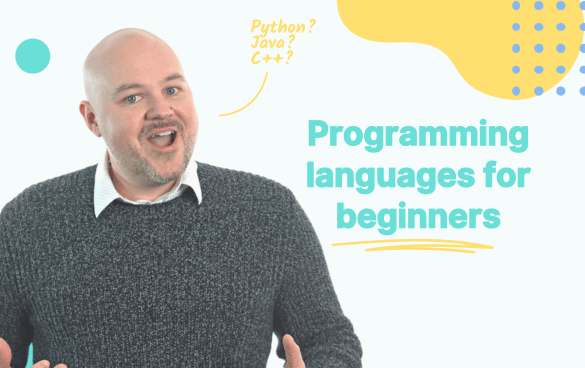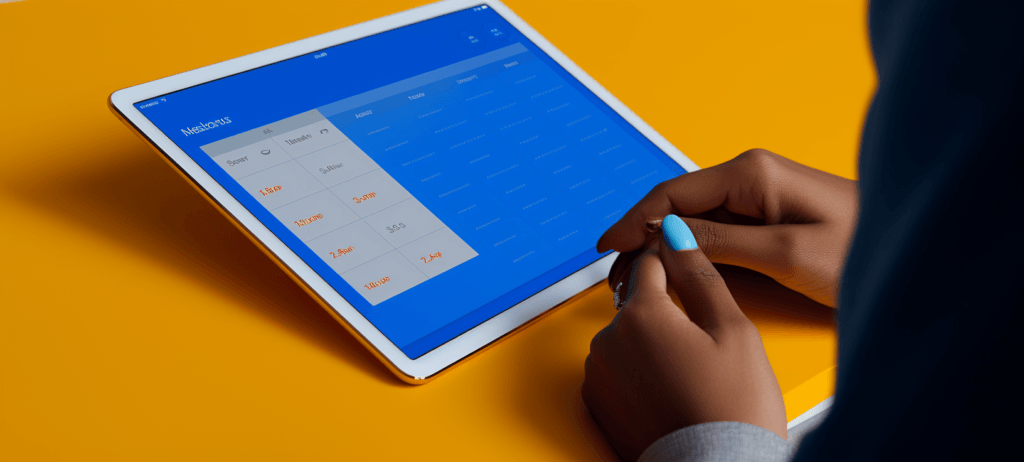- Home
- Blog
- Web Design The 7 Best Programming Languages for Beginners
The 7 Best Programming Languages for Beginners
-
 Published: Apr 10, 2023
Published: Apr 10, 2023
-
 8 min. read
8 min. read
-
 Matthew Gibbons
Matthew Gibbons Lead Data & Tech Writer
Lead Data & Tech Writer
- Matthew is a marketing expert focusing on the SEO & martech spaces. He has written over 500 marketing guides and video scripts for the WebFX YouTube channel. When he’s not striving to put out some fresh blog posts and articles, he’s usually fueling his Tolkien obsession or working on miscellaneous creative projects.
In this video, Alex from the WebFX Interactive team will walk you through some of the simplest and most widely used programming languages. Keep reading for more info!
Transcript:
Hey guys! When you think of the word “programming,” what do you picture? You probably picture people writing a whole bunch of code, right? Well, I’ve got news for you, because the reality is…
…actually, yeah, that’s pretty much what programming is. Hm.
Anyway, if you know nothing about code, you probably imagine that programming is super hard. It probably seems incredibly technical and complicated. And it can be, if you dive in really deep. But not always. In fact, you might want a basic level of programming knowledge to help you set up your website.
But the thing about programming is that it uses different languages. If you ever want to do any coding yourself, you’ll want to learn at least one of those languages — but where do you start?
In this video, we’re gonna cover some of the best programming languages for beginners, so stick around to learn more.
Good agencies have more than 50 testimonials.
Great agencies have more than 100 testimonials.
WebFX has over 1,100+ glowing client testimonials.
See What Makes Us Stand out
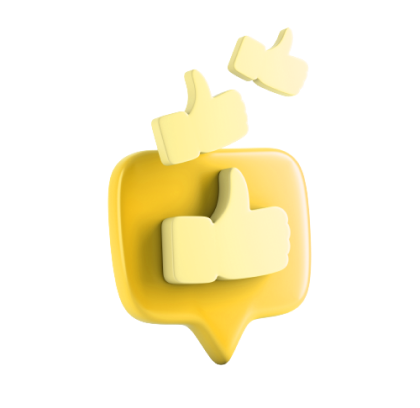
What are programming languages for?
First off, why do programming languages exist? What’s the point of them?
Basically, programming languages let you communicate with computer programs. They also let different pieces of software communicate with each other. Like, if you want to tell a program or webpage to do a particular task, you can’t just talk to it like you’d talk to a person. Though that would be really cool. You have to use a programming language.
Not just any programming language, either — there are different programming languages for different things. Each language is optimized for a particular function or type of software.
How many programming languages are there?
You might have heard of some of the languages we’ll cover on this list. Python, JavaScript — those names might ring a bell, even if you know nothing about them.
But odds are, you have no idea just how many programming languages are out there. We’re only covering a tiny fraction of them on this list, but as it happens, there are as many as 2500 coding languages being used today. That’s an insane amount.
Fortunately, you don’t need to learn anywhere near that many coding languages. At most, you’ll only need to learn a few, and if you’re just looking to make basic edits to your website, you’ll probably only need one or two.
7 best programming languages for beginners
You may only need to learn one programming language, but that still leaves the question of which one. That, of course, depends on what it is you want to do. There are a handful of well-known programming languages out there that are good for beginners, and we’re gonna cover seven of them in this video.
1. HTML
First up, we have HTML. If you wanna get technical, HTML is a markup language, not a programming language… but it’s similar enough that for the purposes of this video, it counts.

Put simply, HTML is a type of code used to build webpages and emails. It uses tags to lay out the structure of each page, particularly text content like paragraphs and headings. HTML is also the main language used to create hyperlinks between different pages.
If you’re interested in using code to build your website, you’ll definitely want to learn HTML.
2. CSS
CSS — which stands for Cascading Style Sheets — is similar to HTML because it’s also used for websites and emails. However, where HTML focuses more on text content and overall page structure, CSS is more about the visual design of a page.

You can use CSS to modify the way your HTML pages are presented to users, converting them into a more visually pleasing form. You can change things like color, format, and size for your text and images. Plus, more advanced CSS knowledge can help you create animations.
3. Python
Python’s an excellent programming language intro. The code is much closer to actual language, making it easier to learn and understand. That’s obviously helpful since it means you don’t have to learn quite as much technical stuff.

It’s also very widely used. People use Python for tons of things — analyzing data, building software, developing websites, and more. If you were to show up at a random programmer’s desk and ask what programming language they were using at that moment, there’s a reasonably good chance it’d be Python.
So, if you’re just looking to get some general programming language knowledge, Python’s a great starting point.
4. Java
Next up we have Java, which you may have heard of before — it’s definitely one of the better-known ones. It’s also pretty easy to learn, though maybe not quite as easy as Python.

Java’s a pretty flexible language. If you create something in Java, you can usually run that creation on multiple platforms. For that reason, it’s pretty popular among software developers. So, if software development is what you’re interested in, Java might be a good language to learn.
5. JavaScript
Don’t be fooled by the name — JavaScript isn’t the same as Java. They’re two different languages. While Java is typically used for software, JavaScript is used for websites.
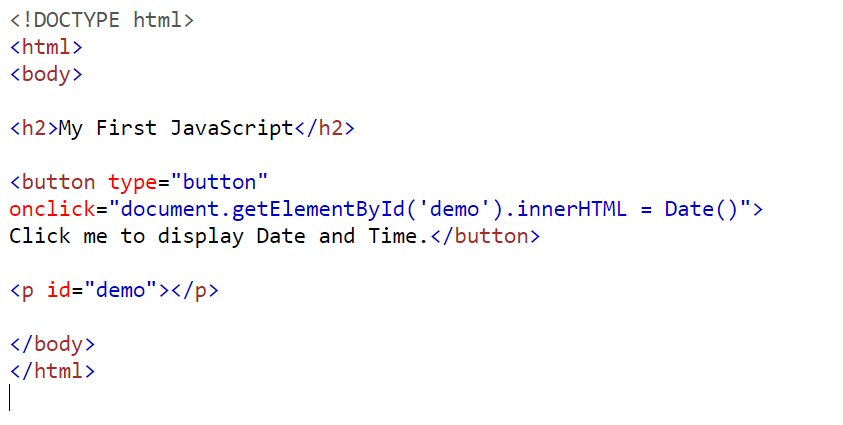
To be more specific, JavaScript is used for all the moving parts of a website. HTML creates the structure, CSS reformats the appearance, and JavaScript runs things like videos and animations. You can also use JavaScript to create mobile and website apps.
It’s definitely one of the best-known programming languages out there, and always a great one to learn.
6. C, C++, and C#
Yeah, I know, this one’s technically three languages. But they all sort of go together.
First we have C.
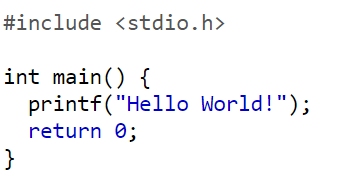
C is a pretty old language — it’s been around since the ‘70s. Basically, it’s used for operating systems and different kinds of software. Unfortunately, it’s one of the less beginner-friendly on this list since it’s optimized more for machines than for people.
C++ is a modified version of C that is doesn’t run quite as quickly, but is definitely easier to learn.
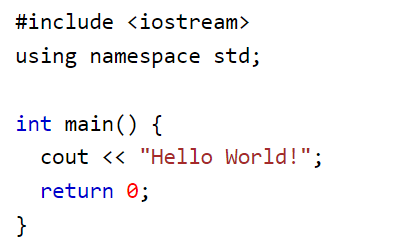
It’s also widely used, usually for the same types of things — operating systems and software development.
Then we have C# — yes, like the musical note — which is much newer, and also much more human-friendly.
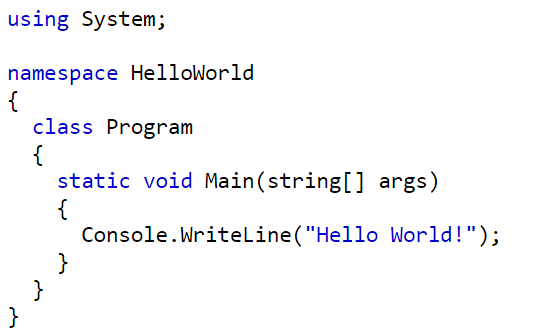
It’s used for a lot of things, including video games and enterprise software. If you want to learn a C language, C# is the easiest — though, of course, choose the one that’s best suited for what you want to do.
7. SQL
The final programming language on our list is SQL, which stands for Structured Query Language. SQL is primarily used for data analysis. Basically, it helps you communicate with databases. You can use SQL to pull data from your database, gather new data, or organize data in a particular way.
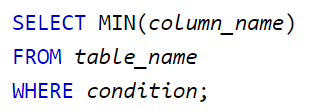
That makes SQL great for many businesses, since data analysis is so important for things like marketing and sales. By learning SQL, you can learn a lot more from your marketing, helping you improve it and ultimately earn more revenue.
Of course, you don’t have to rely on code like SQL to help you analyze your data — you can also just use a tool like MarketingCloudFX that makes it easy to understand your marketing performance.
We don’t want to tell you about the work we do, we want to SHOW you.
View Our Portfolio
We’ve built over
Websites
in a variety of industries.
Learn more about programming and marketing from our team
You can subscribe to our YouTube channel or our email newsletter, Revenue Weekly, to learn more about web development and marketing.
That’s all for now. Thanks for watching, and we’ll see ya next time!
Note: Code screenshots, with the exception of CSS and HTML, were sourced from W3 Schools.
-
 Matthew is a marketing expert focusing on the SEO & martech spaces. He has written over 500 marketing guides and video scripts for the WebFX YouTube channel. When he’s not striving to put out some fresh blog posts and articles, he’s usually fueling his Tolkien obsession or working on miscellaneous creative projects.
Matthew is a marketing expert focusing on the SEO & martech spaces. He has written over 500 marketing guides and video scripts for the WebFX YouTube channel. When he’s not striving to put out some fresh blog posts and articles, he’s usually fueling his Tolkien obsession or working on miscellaneous creative projects. -

WebFX is a full-service marketing agency with 1,100+ client reviews and a 4.9-star rating on Clutch! Find out how our expert team and revenue-accelerating tech can drive results for you! Learn more
Make estimating web design costs easy
Website design costs can be tricky to nail down. Get an instant estimate for a custom web design with our free website design cost calculator!
Try Our Free Web Design Cost Calculator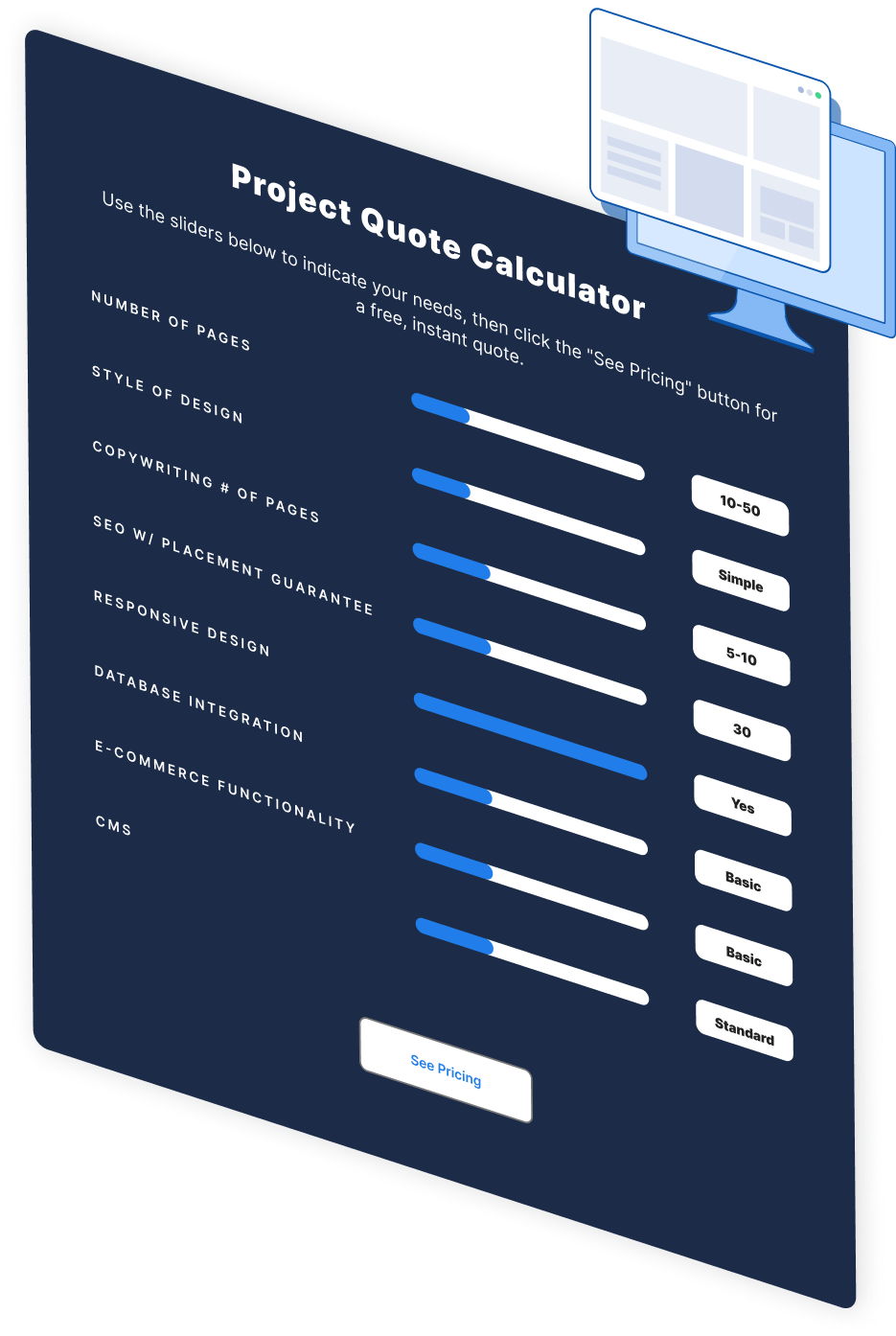


Web Design Calculator
Use our free tool to get a free, instant quote in under 60 seconds.
View Web Design CalculatorMake estimating web design costs easy
Website design costs can be tricky to nail down. Get an instant estimate for a custom web design with our free website design cost calculator!
Try Our Free Web Design Cost Calculator

